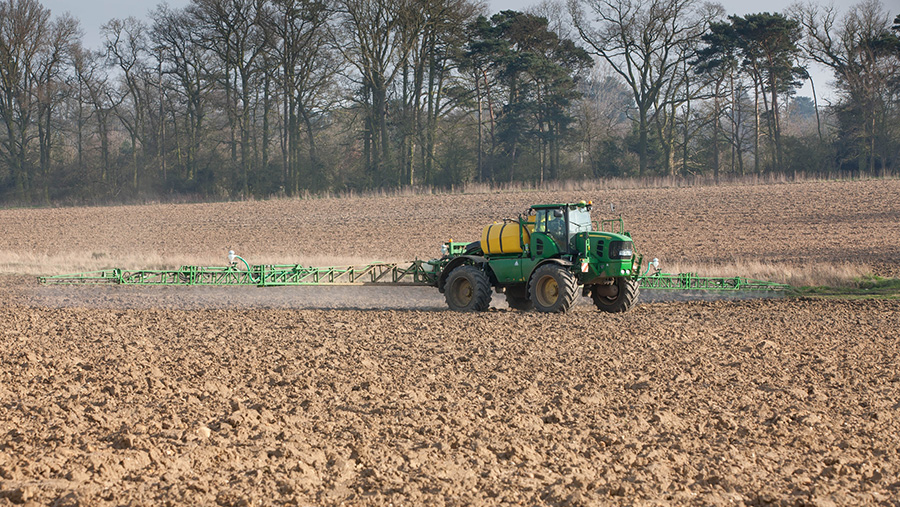Farmers make case for glyphosate ahead of crucial vote
 © Tim Scrivener
© Tim Scrivener Farmers from across Europe have sought to make a compelling case for the reapproval of glyphosate, ahead of a crucial vote in Brussels.
A new proposal to extend the licence for glyphosate for up to 18 months is to be put to the vote on Monday (6 June).
Member states have been split over the issue in recent months, following conflicting reports about the safety of the product.
Some studies have concluded glyphosate is “probably carcinogenic”, although the European Food Safety Authority has said this is unlikely.
See also: EU Commission seeks 18-month extension for glyphosate
During a meeting with EU health and food safety commissioner Vytenis Andriukaitis on 2 June, European farmers warned that, without glyphosate, sustainable, quality and safe EU food supplies would be under threat.
They also stressed that using glyphosate allowed them to farm in ways that cut carbon emissions and helped to protect soil health.
Guy Smith, NFU vice-president, said losing glyphosate would cost the UK economy alone €630m (£495m) annually.
It would also make European farmers less competitive, as farmers in non-EU countries would still have access to the chemical.
“Glyphosate is the most widely used herbicide in the EU. I have been using it on my arable farm for 40 years to produce quality grain used for breadmaking,” he said.
“Pre-harvest use in particular ensures the highest quality for bread and saves money and carbon dioxide.”
Environmental cost
Finnish arable farmer Max Schulman underlined that removing access to glyphosate would bring environmental costs.
“I have been using no till – a sustainable agricultural practice – since 1992 when producing malting barley and it’s with the use of glyphosate that I am able to do this in a cost-effective manner to ensure my soils are in good condition.
“It is an important tool together with catch crops to prevent soil erosion and reduce greenhouse gas emissions”.
German farmer Bernhard Conzen agreed that glyphosate had a crucial role in crop rotations to keep soils in good condition.
“It enables me to plant sugar beet in spring directly after a catch crop and prevents soil erosion.
“Without it, I would need to use an extra 20-30 litres of fuel per hectare to mechanically till the land and around 15-18 more hours per hectare to do the same work”, he added.
Pekka Pesonen, secretary-general of European lobby group Copa-Cogeca, called on member states to vote in favour of the extension of the approval of glyphosate.
The EFSA had given the product a positive assessment and this should be followed, he said.
“Farmers need to have cost-effective and sustainable tools available to ensure safe, reliable and affordable food.”

